Adata, OWC, and Stardom Roll Out USB4 SSDs and Enclosures for Faster External Storage
by Anton Shilov on December 13, 2023 11:00 AM EST- Posted in
- Storage
- SSDs
- ADATA
- Thunderbolt
- OWC
- External SSDs
- USB4
- Stardom
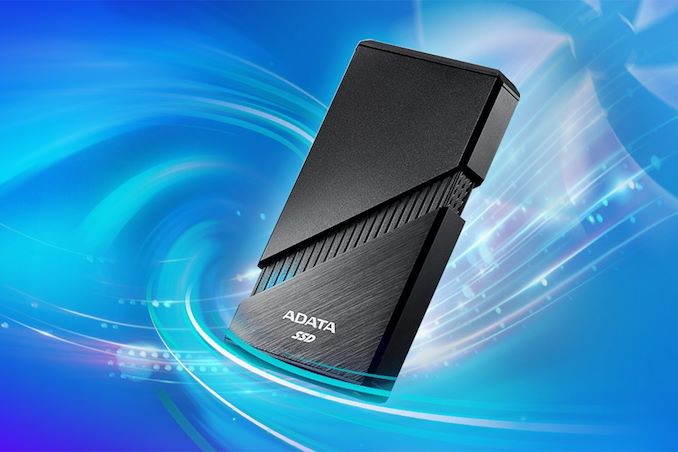
When the USB4 specification emerged several years ago, it was quickly positioned as a less expensive alternative to the Thunderbolt 3 technology which ruled the market of high-performance direct-attached storage (DAS) devices and docking stations. Since then, we've seen multiple USB4 docks hit the market, but USB4 DASes and SSDs are still rare. Thankfully, the situation began to change in the recent weeks, as multiple vendors have finally begun releasing their own USB4 SSDs and external drive enclosures.
Adata
Adata announced its first SE920 External USB4 SSD back in August 2021, but it only started shipping these drives in October. Adata's SE920 External SSDs offer capacities of 1 TB or 2 TB, along with a sequential read speed rating of up to 3.8 GB/s as well as a sequential write speed of up to 3.7 GB/s when working with a USB4 host. Otherwise, the drive is rated for 3.20 GB/s on Thunderbolt hosts, due to the greater overhead of the Thunderbolt protocol.
One interesting feature of the Adata SE920 External USB4 SSD is that it comes with a 'telescoping' case that allows to activate its internal fan for better heat dissipation. Such design allows to better ensure consistent performance under high loads, which is set to be particularly useful when transferring large volumes of data. Meanwhile, like other modern SSDs, the SE920 uses pseudo-SLC caching, which means that it demonstrates its maximum performance only while there is spare SLC-cache.
Adata's drive looks like a very decent product overall, and it's priced very competitively with other high-performance drives on the market, with Adata charging around $150 for the 1 TB version and $200 for the 2 TB version.
OWC
Meanwhile, for the DIY crowd that wants to build their own USB4 SSDs, standalone USB4 enclosures are finally available as well. OWC's Express 1M2 enclosure is based on the ASMedia ASM2464PD USB4/Thunderbolt to NVMe bridge, and is compatible with virtually any NVMe M.2-2280 SSD.
The enclosure supports sequential read/write speeds of up to 3,151 MB/s, as well as capacities up to 8 TB (the largest M.2 2280 drive capacity currently available). Mindful of how warm modern, high-end SSDs can get, the enclosure's case acts like a huge heat sink, helping to keep those increasingly toasty SSDs cool.
On paper, OWC's Express 1M2 DIY enclosure does not reach speeds quite as high as Adata's SE920 SSD, so the extra capacity and ability to throw in any M.2 SSD you have lying around are the main selling points of the device. Pricing, on the other hand is a higher hurdle; OWC is charging $119.99 for the Express 1M2 enclosure on its own, and $219.99 for the enclosure with pre-installed 1 TB SSD.
Stardom
Although OWC's DIY USB4 SSD enclosure seems a bit overpriced, good news is that the company is not alone selling such devices. Stardom also has its UBOX-B4BP USB4 SSD enclosure that has the same feature set (e.g., compatibility with almost any M.2-2280 SSD and latest PCs), but it is slightly larger and its rated performance figures are up to 2,920 MB/s for writes and up to 3,214 MB/s for reads.
The enclosure allows building external USB4 storage solutions of up to 8 TB (and larger when such drives become available) that can work with both new and old PCs. Interestingly, Stardom has included a second USB-C connector on the enclosure solely for power purposes, allowing it to be used with an external power adapter if a host can't provide enough bus power on its own.
Stardom yet has to start selling its its UBOX-B4BP USB4 SSD enclosure in the U.S. and Europe, but in Taiwan the product costs NT$3,990 ($120 without VAT), which is not exactly cheap.


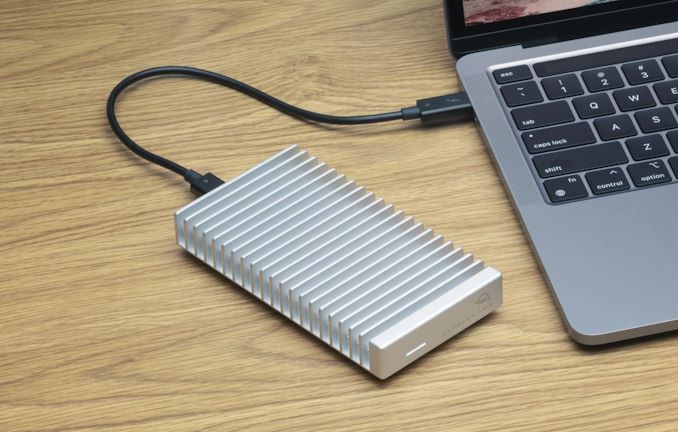
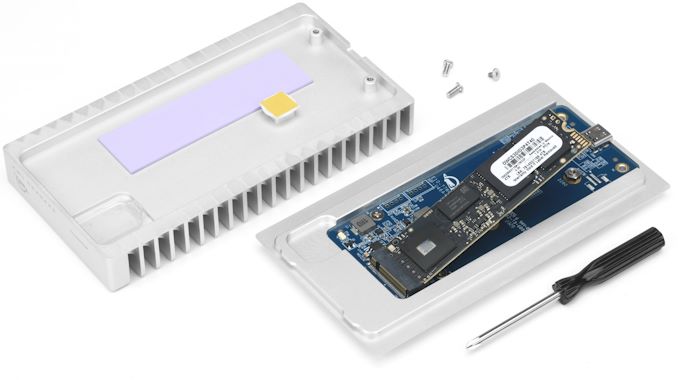
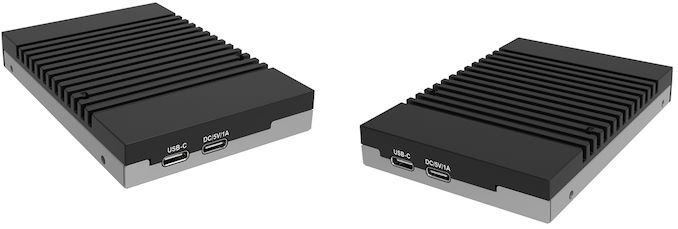
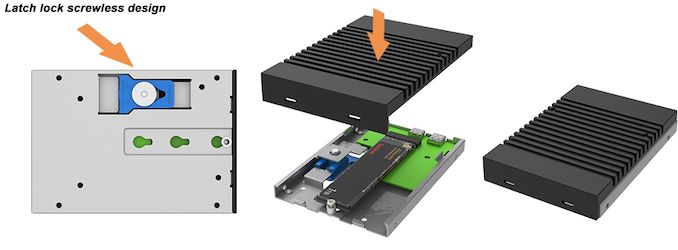








22 Comments
View All Comments
mczak - Wednesday, December 13, 2023 - link
"Adata's SE920 External SSDs offer capacities of 1 TB or 2 TB, along with a sequential read speed rating of up to 3.8 GB/s as well as a sequential write speed of up to 3.7 MB/s when working with a USB4 host."This write speed seems painfully slow :-)
ballsystemlord - Wednesday, December 13, 2023 - link
Yes, modern email clients demand at least 10 MB/s for you to read your emails. :-)SanX - Thursday, December 14, 2023 - link
GB not MBmczak - Friday, December 15, 2023 - link
Yes, the article was fixed.PeachNCream - Thursday, December 14, 2023 - link
Those are enclosures are rather large for comparably small storage devices.André - Thursday, December 14, 2023 - link
The Asmedia ASM2464PD USB4 controller chip they use gets pretty toasty.PeachNCream - Friday, December 15, 2023 - link
Yeah that must be the case. There are obvious contact pads for what are probably the controllers in the photos. Still a little disappointing they're so bulky though.tmanini - Thursday, December 21, 2023 - link
Can't change the laws of Physics.Golgatha777 - Thursday, December 14, 2023 - link
NVME is the new 3.5in form factor drive.FatFlatulentGit - Thursday, December 14, 2023 - link
At this point they should probably bite the bullet and put active cooling in these enclosures, especially with the USB4 chipset. Throttling is virtually guaranteed on larger transfers. The fatter cases might let them run at max a bit longer, but probably not much more before the heatsink fins could double as a bbq grill.